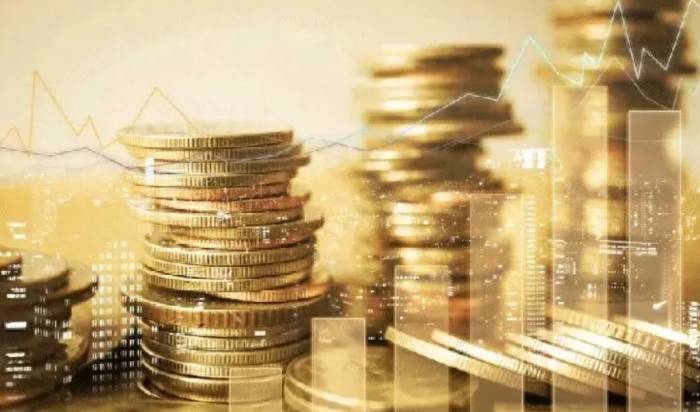Trillion USD to RMB: Appreciation Likely
On the global economic stage, it is widely acknowledged that the United States has always been a "leading actor."
Whether it's the hegemonic status of the US dollar or its robust economic strength, it seems insurmountable for other countries.
However, recently, some American economists have started to sound the alarm, predicting that there might be a future where trillions of dollars flow towards the Chinese yuan.
This change is not only shocking but also prompts one to ponder: is the U.S. economy really feeling anxious?
This is not baseless talk.
As the economic landscape of countries continues to evolve, the attractiveness of the Chinese market is growing larger.
Many investors are beginning to shift their focus to the yuan, believing it could be poised for appreciation.
What impact will this have on the United States?
It's common knowledge that the US dollar, as the world's primary currency, has long enjoyed the status of a "reserve currency," giving the U.S. an advantage in international trade.
Now, if there really is a trillion dollars flowing into the yuan, it will undoubtedly challenge the dollar's dominance.
Advertisement
Imagine, when the yuan becomes the preferred choice for more and more countries, will the status of the dollar remain unshaken?
American economists are not making this up out of thin air.
According to their analysis, China has shown tremendous potential in terms of economic growth rate, market size, and foreign exchange reserves.
Once the yuan strengthens, investors will naturally be inclined to shift their funds to yuan assets, making the appreciation of the yuan a trend.
Those who follow this topic know that the appreciation of the yuan will have profound effects on China's economy and individual lives.
First, the prices of imported goods will decrease due to the appreciation of the yuan.
For the vast majority of consumers, this means they can buy higher-quality goods for less money.
Whether it's daily necessities or electronic products, the consumer experience will be significantly enhanced.
However, for businesses that rely on exports, the appreciation of the yuan is not good news.
Exported products become more expensive in the international market, which may lead to a decrease in orders and a reduction in corporate profits.
In such a situation, companies need to adjust their strategies, perhaps seeking innovation and transformation to overcome the challenges brought by appreciation.
Speaking of which, let's talk about the U.S. reaction.
For American economists, the present is indeed a worrying time.
A trillion dollars flowing towards the yuan means that foreign investors' confidence in the U.S. economy is wavering.
This lack of confidence could lead to capital outflow, further suppressing the economic growth of the United States.
At the same time, the U.S. is also facing a more complex economic situation.
Issues such as high inflation and supply chain crises are intertwined, increasing market uncertainty.
If coupled with the rapid appreciation of the yuan, the relative depreciation of the dollar could push the U.S. into a darker economic corner.
Of course, investors are also closely monitoring this change, scrambling to find new investment opportunities.
As the expectation of yuan appreciation strengthens, many investors are beginning to re-evaluate their investment portfolios, considering allocating some yuan assets.

At this time, for those visionary investors, it is an optimal moment to seize opportunities.
Next, there is another important aspect to consider.
Rather than worrying about the threat to itself after the yuan's appreciation, the U.S. should be more concerned about the shift in the global economic landscape.
When more and more countries are willing to hold the yuan, it means that the international market's recognition of the yuan is continuously increasing, and it may even promote the formation of a new trade system.
Imagine, if the yuan really becomes the global bank card in the future, does the U.S. economic policy need to be re-examined?
Is it necessary to make corresponding adjustments to adapt to the new international economic environment?
These are important issues facing American economists.
Of course, how the trillion dollars will flow to the yuan and whether the appreciation of the yuan can really happen is still a mystery.
What is certain is that this change will inevitably trigger a series of chain reactions, affecting not only the economic level but also international relations, trade policies, and more.
In the face of such changes, whether it's ordinary consumers or investors, we should remain vigilant and adjust our strategies in a timely manner.
Especially in this era where information changes rapidly, understanding market dynamics and grasping economic trends are particularly important for us.
Although the future is full of uncertainty, the rise of China's economy and the potential of the yuan are evident.
The anxiety of American economists is not entirely unfounded, after all, in the context of economic globalization, it is impossible to ignore the rise and change of any economy.
For everyone who is striving for wealth and success, keenly capturing these changes will be an important part of our success in the future.